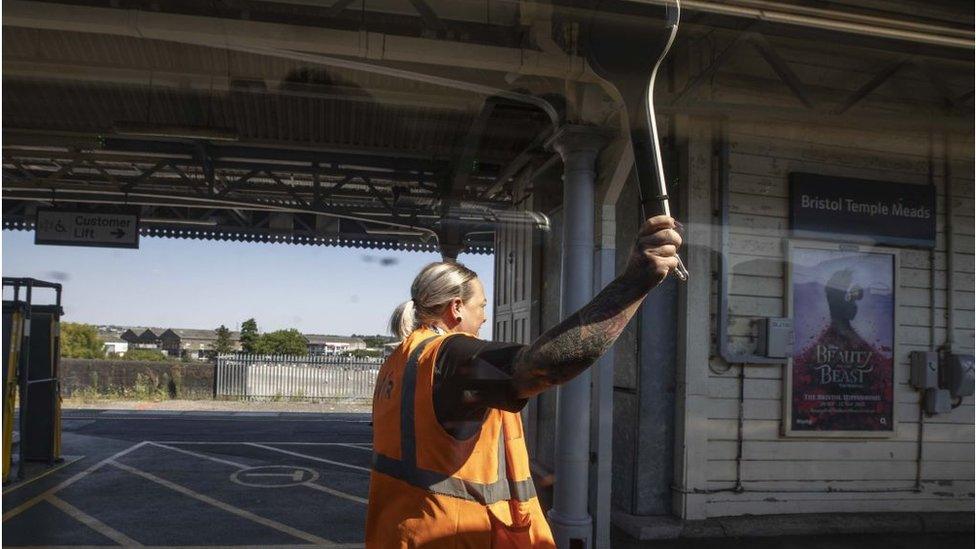UK's biggest unions propose co-ordinated strikes this autumn
- Published
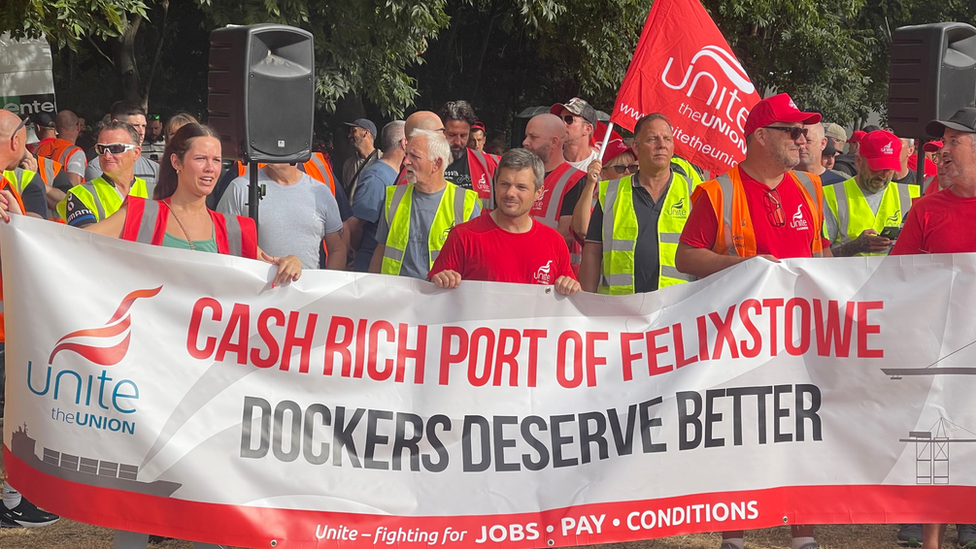
Unite members have been striking at the Port of Felixstowe in a dispute over pay
The UK's two largest trade unions, Unite and Unison, are seeking to co-ordinate strike action this autumn as they step up demands for better pay.
Both have submitted motions ahead of the Trade Union Congress next month calling for walkouts to be synchronised to have more impact.
There has been a rise of strikes this summer, with rail workers, barristers and rubbish collectors walking out.
The TUC - which represents 48 unions - will hold its annual conference online.
It said it was ready to help members of those unions win pay rises that reflect the cost of living.
"This Conservative government is now putting together a co-ordinated plan to stop workers from protecting their pay and conditions - and working people are on the brink," spokeswoman said.
"So, if strikes coincide, it reflects this broad attack on working people and their living standards coming from this government.
"The TUC has always helped to co-ordinate strike action when asked by our unions and we are ready to do so again."
'No other choice'
As first reported by the Observer, external, co-ordinated action would stop short of a general strike, which some union leaders have called for.
Unite's motion urges the TUC, external to help "facilitate and encourage industrial coordination" between unions so that workers can "most effectively harness their union power to win".
Meanwhile, Unison's motion will call for a special working group to organise co-ordinated action over pay and terms.
Unite, which has 1.2 million members, organised the eight-day strike currently under way at the UK's biggest container port, Felixstowe, as well as recent walkouts on London's bus and Tube network.
It represents workers in manufacturing, public services, transport, food, finance and construction.
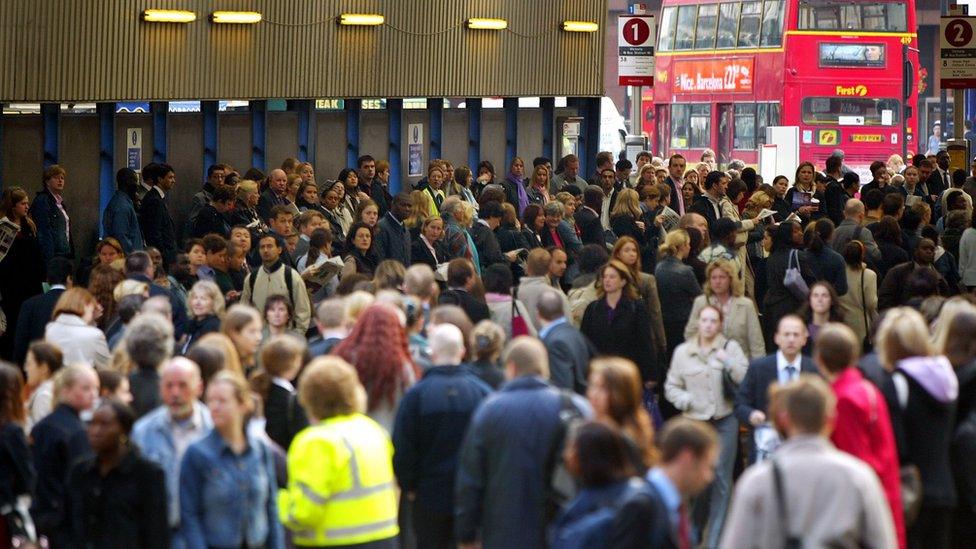
Bus and tube strikes cripple London's transport system
Unison, which has 1.3 million members, is taking part in bin strikes currently hitting Scotland and plans walkouts by school and nursery staff as well as exam board workers.
Unison and other unions have largely been rebuffed in their demand for pay rises that match the rising cost of living.
A spokesman told the BBC: "Workers don't take the decision to strike lightly, but they feel they have no other choice to get a decent wage increase. It makes sense for unions to ensure any industrial action is as effective and meaningful as possible."
'You need to pay workers more'
On Sunday, Unite boss Sharon Graham told the BBC Radio 4's Broadcasting House programme that her organisation would not back down.
She said 73,000 of her members had been in dispute in the last year, and 80% of those actions had been successful.
"We've put £150m back in members' pockets, and they are ordinary men and women of all different ages. It would be totally wrong for me as the leader of this trade union not to say to employers that you need to pay these workers more."
Liz Truss, who is seen as the most likely candidate to replace Boris Johnson as PM, has promised to crack down on unions if she wins power, by making it harder to organise strikes.
But Ms Graham said the "the mood of country" had changed and said she expected Ms Truss to "temper" her plans if she takes over in September.
Ms Graham also criticised Labour for not showing stronger support for the strikes, adding that leader Sir Keir Starmer needed to "get a spine".
"Trade unions are emerging as the only people in the corner of workers," she said. "I feel that Parliament has been captured by the business lobby."
- Published28 August 2022
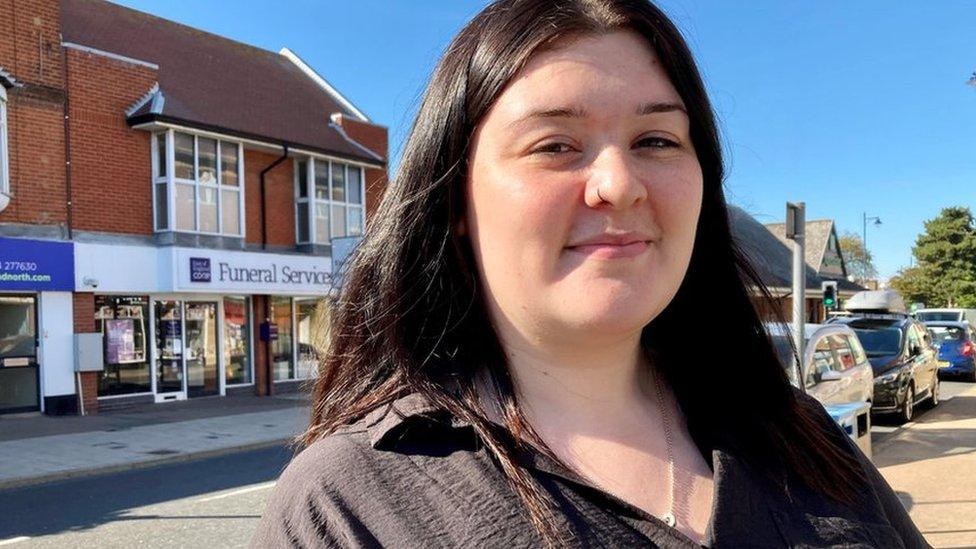
- Published26 August 2022
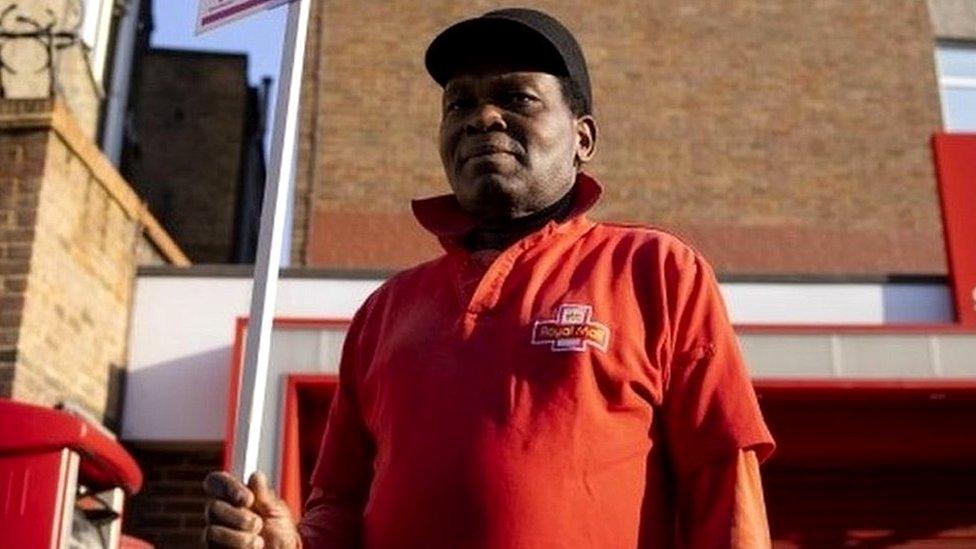
- Published25 August 2022
